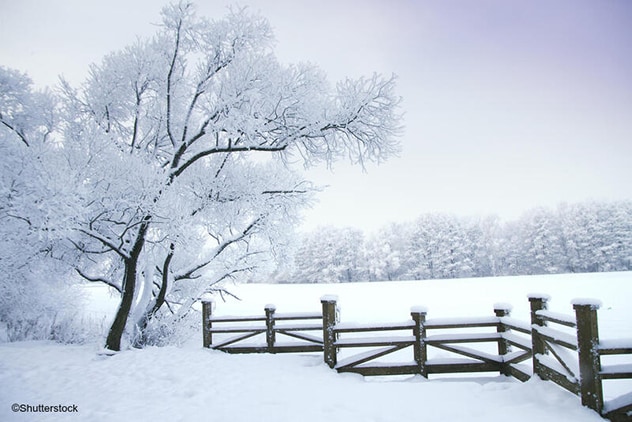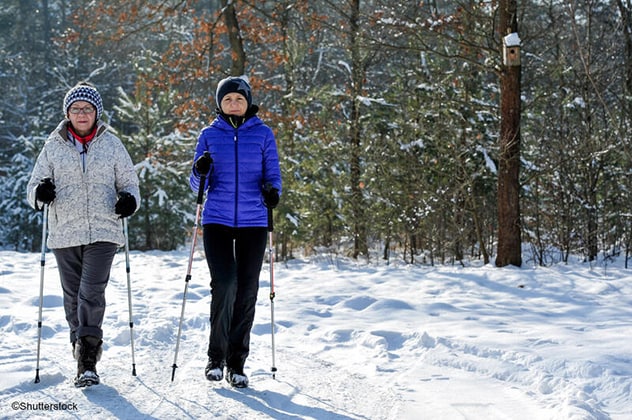Feb. 12, 2025
 Winter
Winter
Patients more commonly seek emergency and trauma care for falls during the wintertime.
Bo E. Madsen, M.D., M.P.H., an emergency medicine physician at Mayo Clinic in Rochester, Minnesota, sees patients who have fallen all the time, but especially during winter. And he notes that most of these falls occur during mundane activities.
"Falls during everyday life are more common than in winter sports," he says. "We see everyday falls that happen while a patient is walking to the mailbox or going down the stairs outside the house."
Injuries from winter falls, especially in older adults
The common injuries Dr. Madsen sees from winter falls include:
- Broken hips
- Broken wrists
- Head injury with or without intracranial bleed
He deems skull fractures, intracranial bleeding and broken hips to be among the worst types of winter fall injuries. Dr. Madsen also notes that winter falls often involve older adults. If patients experience head injury and are taking anticoagulants, outcomes can be worse than for those not taking this medication, he says.
An intracranial hemorrhage can have long-term consequences, and he notes that "any broken bone rarely is as good as it was, despite repair."
Falls also may diminish quality of life for older adults, especially if they lose function, making it harder to live independently, Dr. Madsen says. Severe winter fall injuries can result in a patient's death, especially in this population.
"These patients don't die from a fall immediately, but it hastens their demise," he says. "A fracture from a fall can be the beginning of the end."
Concussions from falls can last a long time, Dr. Madsen says, and some individuals do not recover well from them.
He also notes that sometimes patients ignore their fractures and delay getting medical help, going in for emergency care days after a fall.
A potential complication of winter falls
One challenge of wintertime falls on ice or snow with cold ambient temperatures is being located, which is critical to getting help and shelter from the cold. Otherwise, people who fall may be stuck in the same location outdoors for hours, putting them at risk of hypothermia. Dr. Madsen says he has seen patients in the emergency department who were trapped alone outside after a winter fall.
Hypothermia risk, if a person is stranded by a winter fall outdoors, is further complicated when the patient is both injured and intoxicated. The alcohol prevents the individual's temperature from regulating as well as usual.
According to Dr. Madsen, the speed at which an individual develops hypothermia if isolated after a winter fall outside depends on both the ambient temperature and the person's clothing.
"If the person who fell is in jeans and a shirt, it doesn't take long to become hypothermic," he says.
Treatment of hypothermia from winter fall injuries
These actions are critical if an individual has been trapped alone outside for a significant amount of time after a winter fall:
- Go through the standard ABCD trauma assessment.
- Perform active rewarming with warm fluid or a convective temperature management system.
- Conduct an ECG.
Winter injury prevention tips to share with your community
 Nordic walking
Nordic walking
Two people Nordic walk through the snow on a sunny winter day.
To prevent people from falling and being unable to get to help in the ice and snow, or even becoming hypothermic, Dr. Madsen suggests offering your community these tips:
- If visibility is poor in a snowstorm outside, do not go out.
- If you participate in winter sports, do so with a friend.
- If you will be alone while participating in an outdoor activity, tell someone where you will be going.
- Get accident detectors on your cellphone, which can work for any activity with speed in which a crash would be characterized by rapid deceleration.
He also strongly recommends wearing a helmet if involved in winter sports, in case of a fall.
"Falls with injuries in the wintertime don't happen to most people, but they do happen to some," he says. "Wear the helmet."